by Alex Shtaerman
The late ‘90’s would witness rap music in the United States coasting into an unprecedented era of mainstream popularity and commercial success. As many of the adverse circumstances that profoundly shaped the genre at its inception and through the creative explosion of the 1980’s began to fade, the entire nation struck a tone of seemingly ubiquitous overindulgence. The dawn of the internet age had brought with it an entire generation of twenty-something millionaires with deep pockets and expensive hobbies. Luxuries such as cell phones and laptop computers became the norm while the threat of war and unemployment came to be perceived as symptoms of a bygone era. Perhaps the most compelling story of the day was the President’s own overindulgence with a certain White House intern. Most people just shrugged and ridiculed Bubba for getting caught. Cigars with labels bearing Monica Lewinsky’s likeness became a somewhat popular gag gift. There was no question that Americans were thoroughly enjoying the ‘90’s, so it should come as no surprise that P. Diddy continues to endure as one of the era’s most popular and definitive rap “artists”.
However, across the Atlantic, and largely out of sight from most US eyes, things were drastically different. The collapse of the Soviet Union in 1991 sent many Eastern European nations previously encompassed by Moscow’s political and economic sphere of influence reeling. The former Republic of Yugoslavia disintegrated into a bloody civil war as rival ethnic groups fought to establish separate governments and carve out adjacent territories. What ensued has been characterized by many as genocide and ethnic cleansing. But in spite of these circumstances, there was still one constant – just like in the United States , Hip-Hop was now here to bear witness to these events as well. After initially filtering into the region during the ‘80’s, rap music, breakdancing and graffiti art had gained widespread acceptance among Eastern European youth by the mid ‘90’s.
The artists that would subsequently emerge from war-torn regions such as the Balkans would, to a large degree, embrace a perspective that was in sharp contrast to many of their US contemporaries. “Our experiences growing up are similar to those of US rappers in the sense that we can all relate to the struggle of coming up in a low opportunity, high crime society”, explains Cincere, a Serbian rapper and member of the Hip-Hop trio Illuminati X. ”On the other hand though, they’re also different because we were born into the collapse of a nation and brought up during a civil war”, asserts the MC who spent part of his childhood as a refugee before immigrating to Canada where he would meet his future bandmates, Deluxe and Kreem Yung, both of whom had also fled the same region in a bid to escape the escalating violence.
Today Cincere, Deluxe and Kreem Yung spend their time performing as Illuminati X and working on new music instead of worrying about the safety of their friends and relatives. Recording tracks in English as well as in Serbian, Illuminati X has generated a considerable buzz by crafting an authentic brand of Hip-Hop driven by the basic time-tested formula of beats, rhymes and original content. With the war in their homeland finally over, the trio has also been successful in cultivating a considerable following in their native Serbia. Recently we had a chance to sit down with Cincere, Deluxe and Kreem Yung to talk Hip-Hop and get a glimpse into the role that circumstance and sometimes random chance often plays in shaping the world that we live in and sometimes even the music that we listen to.
Click here to listen to “Club IX Million”, an ill joint to ride to, for sure!
Click here to listen to “American Nightmare”, hardcore political flavor from Illuminati X.
Click here to listen to “Summer Rain”, more Hip-Hop music from Illuminati X.
RIOTSOUND.COM: Going back to the very beginning, how did Illuminati X originally get started? Also, being that all of you are originally from Serbia, how would you characterize the circumstances under which Hip-Hop emerged in your home country?
KREEM YUNG: I met Luxe in ’97 when we were like thirteen or fourteen years old. We both barely spoke English and at the time I listened to rap mostly for the beats. Cincere was a shorty from around the way that just had mad rhymes, so every once in a while we would get together to record songs and freestyles. As we got better we started receiving more and more positive feedback and we started looking at this music shit as a potential career.
CINCERE: I would say Hip-Hop first made its way into Serbia around the mid ‘80’s, first through breakdancing and graffiti and then through the music. Initially, it was only a big city “street” thing and it was considered an underground culture. For us, like most Serbian kids, it became a part of our lives around ‘94, ‘95, when the first commercial records were released and songs started gaining media exposure.
RIOTSOUND.COM: In the United States, Hip-Hop was in many ways shaped by an era that was marked by rampant civil unrest, poverty and hopelessness, among other perverse elements. If we look at Eastern Europe following the 1991 collapse of the Soviet Union , we also see many of the same conditions in addition to far more serious circumstances such as civil war and genocide. Nations such as Serbia, in particular, have suffered immeasurably during this extremely turbulent period. Can you talk about your own personal experiences as youths and adolescents and what you went through in the past that shapes the music you create today?
CINCERE: In a way, our experiences growing up are similar to those of US rappers in the sense that we can all relate to the struggle of coming up in a low opportunity, high crime society. On the other hand though, they’re also different because we were born into the collapse of a nation and brought up during a civil war.
KREEM YUNG: And it’s crazy, because all three of us still grew up under slightly different circumstances. I was born on the Bosnian side of the conflict; so you’re looking at a religion related war, genocide, illegal trade, killings between neighbors and friends and families, and an overall state of despair and poverty. Cincere’s experiences growing up in a Serbian part of Croatia are basically the same shit, the only difference being the religions involved. Deluxe grew up in central Serbia where there was no war, but the war next door affected every aspect of everyday life – highest crime rates in history, mobilization, hunger, drug trafficking, poverty, political failure and on and on. Eventually Cincere and I both moved to Serbia as refugees, but it wasn’t until coming to Canada that we all met. Coming here was a big transition, almost like a rebirth.
DELUXE: It’s fucked up because if the war didn’t happen we probably never would’ve met. We came from three different places and moved into one building on the other side of the world.
“the idea is that the whole song is spit from an
American President’s perspective, but if you feel
like just listening and ridin’ to it, you can bump
it from any street kid’s perspective as well”
RIOTSOUND.COM: As far as the early Hip-Hop scene in Serbia goes, what would you say were some of the major influences? And also, as the scene grew, to what degree did Serbian artists choose to draw on native styles and subject matter?
CINCERE: At the very beginning it was more West Coast, N.W.A, G Funk influenced. In the mid and late ‘90’s Serbian Hip-Hop found its identity and hit a peek in form and in popularity. Because of the state the country was in, [the music] was very political, very real, aggression driven… “bleeding on a track” type of shit, you know? With time that identity has faded and Hip-Hop in Serbia today is for the most part a wack copy of the already wack mainstream American Hip-Hop, respect to the exceptions. This debate between creating a unique Serbian style and following American trends is definitely a hot topic in Hip-Hop circles back home.
RIOTSOUND.COM: When Illuminati X first formed, what language did you record your music in? Did you start off with English right away or did you transition into it?
DELUXE: We make music in both languages [English and Serbian]. It really depends on the project at hand, the topic of the song and sometimes the beat. Our main focus at the moment is expanding our fan base and reaching as many ears as we can. Our music is worldwide.
RIOTSOUND.COM: Lyrically, what is Illuminati X primarily focused on? Obviously there is a political element to your music, and fans can check that out on tracks such as “American Nightmare” – but as far as other topics, what can someone expect to hear when they listen to Illuminati X?
DELUXE: The political aspect is definitely there and that comes from politics having such a strong effect on our lives and everyone’s lives in general. We don’t ever try to emphasize a certain theme though, our music is very personal and we’re constantly creating a wide variety of new material. With making political records, it’s definitely important to deliver a serious and meaningful message to as wide of an audience as possible, and in order to do that you have to keep them interested. If you listen to “American Nightmare” you can tell that the lyrics are very sarcastic. Certain people will get the message but others who don’t can still bump it without even knowing it’s a political record.
CINCERE: [Reciting lyrics from “American Nightmare”] “Pimpin’ the world is like pimpin’ a girl / Wagin’ a war like getting paid by a whore…. My Moltisanti, tha US army / Uncle Sam look more like Uncle June / I’m consumed with greed, it’s only right that I consume”, you know… really, the idea is that the whole song is spit from an American President’s perspective, but if you feel like just listening and ridin’ to it, you can bump it from any street kid’s perspective as well. First you might just like the beat and the hook, but when the time and the vibe is right a line might catch your attention and change the meaning of the whole song for you.
“It’s unfortunate that the worst artists are getting the
most exposure, but that’s what the market demands.
There is still a whole lot of great Hip-Hop being
made in the States, fans just have to look for it”
RIOTSOUND.COM: As far as current projects, what should the fans be looking out for?
KREEM YUNG: We currently got two mixtapes, both are independent projects. Serbia’s Own is a 30 track compilation of our demo work and State Alert: The ONSeason features 15 new tracks. Both mixtapes feature all original beats and will be available for free worldwide through the internet. We like to call 2009 “two thousand nyne million”, and although many things are still in the finalizing stages, we promise our fans and all fans of good Hip-Hop that a lot of quality music is on the way.
RIOTSOUND.COM: Kreem Yung handles production duties for Illuminati X; so my question is: who would you cite as musical influences production wise?
KREEM YUNG: I handle probably around 95% of our production. We have another in-house producer who goes by the name Pavilion, and we got fam back home. I also do all of our recording, mixing and engineering. As far as my influences in production go, it’s basically Dr. Dre, Havoc, Swizz Beatz and Timbaland. The majority of our samples come from Serbian music, it’s too many to name, but all artists I sample are influences to an extent.
RIOTSOUND.COM: When you look at what happened to American Hip-Hop over the last decade or so with the ongoing emphasis on cars, jewelry and partying that has essentially made the music very one dimensional and uninspiring, what do you make of it all?
DELUXE: Basically Hip-Hop has become big business all over the world, so it’s only natural that the major labels are pushing what appeals to the masses. As a result you’re getting this watered down product. The average consumer doesn’t want to hear AZ or Raekwon. It’s unfortunate but that’s the reality.
CINCERE: It’s not so much about the topics in the music as it is about the artists approaching these topics. If you look at Jay-Z and Biggie, or Eminem, who are recognized amongst the greatest [MCs] of all time, you can see how they benefited from the push of these [big] companies – but with good music. [If you can make good music], you can bring it to a point where song topics don’t matter. American Hip-Hop hasn’t necessarily gotten worse, just bigger. It’s unfortunate that the worst artists are getting the most exposure, but that’s what the market demands. There is still a whole lot of great Hip-Hop being made in the States, fans just have to look for it. It’s crazy because it’s almost like hip hop has come full circle, in ‘92, ‘93, you had to dig for good Hip-Hop, and in ‘09 you gotta do the same.
RIOTSOUND.COM: Do you see the widespread lack of authenticity in Hip-Hop today as an obstacle to your future success or as an opportunity that can potentially be capitalized on?
CINCERE: We’re not really looking at it as either, to be honest. We’re here to create, not compete. The competition is none anyway.
RIOTSOUND.COM: Do you have any last words for all the fans reading this?
DELUXE: We love y’all and we are never going to stop delivering! We never going to stop keeping it real with you. We just getting started. One love.
For more news and info on Illuminati X stay tuned to www.MySpace.com/CincereMySpace, www.MySpace.com/KreemSt and www.MySpace.com/LuxVendetta









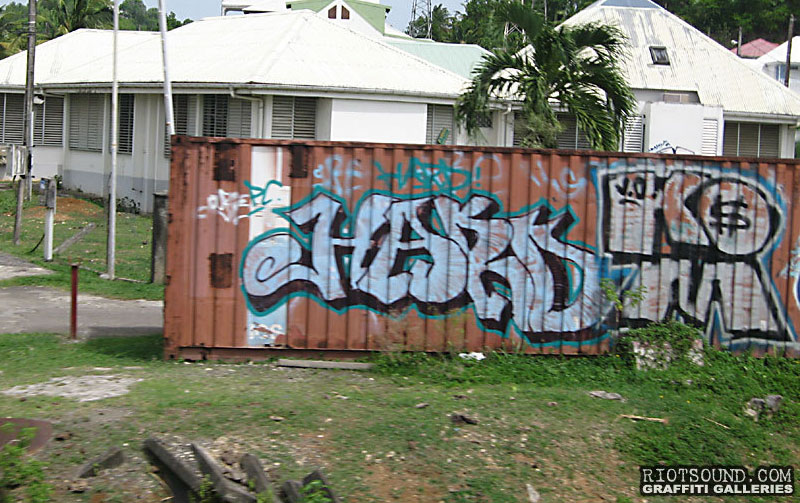

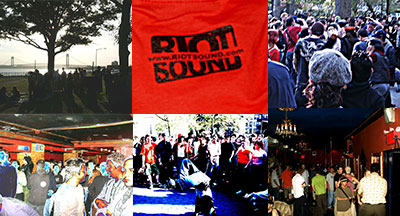
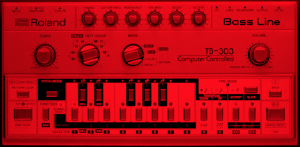


















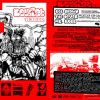
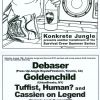

Comments